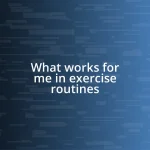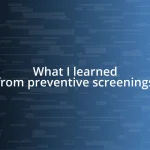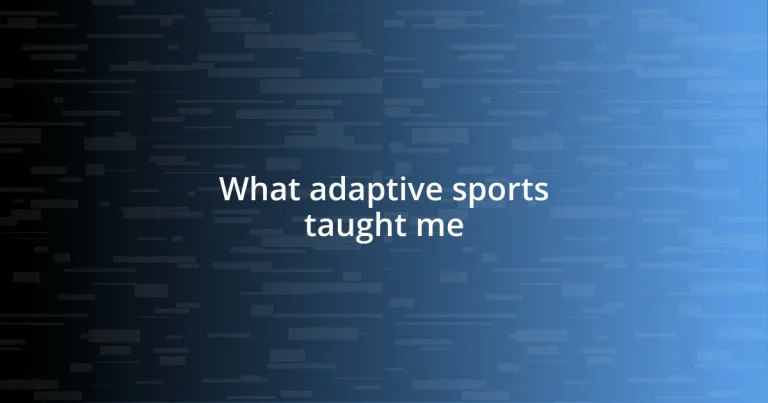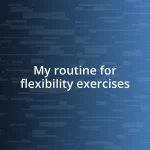Key takeaways:
- Adaptive sports foster community and resilience, transforming perspectives on physical abilities and promoting social connections.
- Participation in adaptive sports enhances physical health, mental well-being, and skill development, while also raising awareness about disabilities.
- The future of adaptive sports is bright with advancements in technology and increased mainstream inclusion, paving the way for mentorship and community growth.

What are adaptive sports
Adaptive sports are specially designed activities that allow individuals with disabilities to participate fully in athletic experiences. These sports often use modified equipment and rules to ensure that everyone can join in, regardless of their physical abilities. Have you ever watched someone soar above the ground in a wheelchair basketball game? It’s a beautiful testament to overcoming barriers and redefining what is possible.
From my perspective, adaptive sports not only promote physical well-being but also foster a strong sense of community and belonging. I remember attending a local adaptive rowing event, where the laughter and cheers from participants created an atmosphere that felt inclusive and empowering. It made me realize how powerful it is to share a sport with others, regardless of the challenges we might face.
There’s something profoundly moving about seeing athletes push their limits, often in ways that I couldn’t have imagined. It makes me wonder: how often do we limit ourselves by what we think we can do? Watching someone with a visual impairment skillfully navigate a challenging course changes the way I view capability and determination. Adaptive sports teach us that resilience knows no bounds.

Benefits of adaptive sports
Participating in adaptive sports opens up a world of benefits that often extend far beyond physical fitness. I vividly remember the first time I joined a session of adaptive cycling; the exhilarating feeling of the wind rushing past me was unforgettable. It wasn’t just about the exercise—there was a genuine camaraderie among the riders, which highlighted how collective experiences can lift everyone’s spirits.
Here are some notable benefits of adaptive sports:
– Increased physical health: Engaging in adaptive sports helps improve strength, endurance, and overall fitness levels.
– Social connections: These activities foster relationships and build a supportive community where everyone feels valued.
– Mental well-being: The sense of achievement and the joy of participation can significantly boost self-esteem and reduce feelings of isolation.
– Skill development: Participants often learn new skills that can translate into other areas of life, enhancing their independence and confidence.
– Increased awareness: Adaptive sports contribute to greater visibility and understanding of disability in society, encouraging acceptance.
Each of these benefits intertwines, creating an enriching experience that not only transforms those involved but also challenges societal perceptions of ability. I often think back to that day on the adaptive cycling course when a fellow cyclist shared how finding that sense of freedom on a bike changed his outlook on life. It’s moments like these that remind us how powerful adaptive sports can be, both for individuals and communities alike.
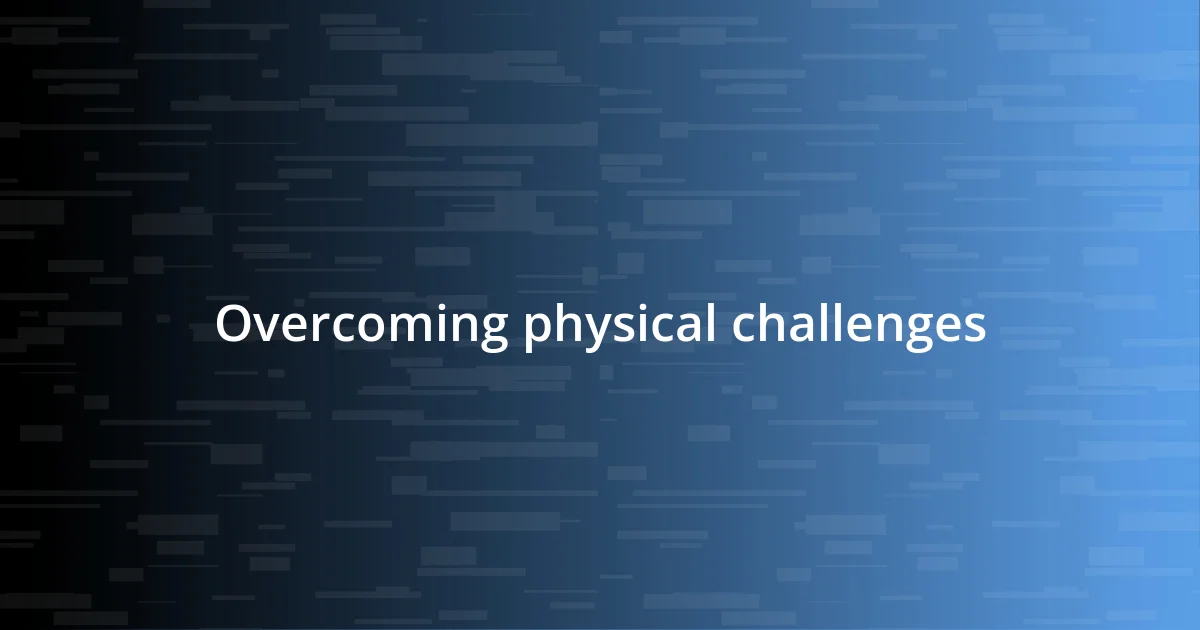
Overcoming physical challenges
Overcoming physical challenges through adaptive sports has been a transformative journey for many, including myself. I vividly recall the first time I participated in a wheelchair race. I felt a surge of adrenaline paired with a hint of anxiety as I pushed through the starting line. The race wasn’t just about speed; it was about confronting my limitations head-on. In that moment, I realized how much more I could push myself when I embraced the challenge rather than shrink away from it.
I often think about the power of resilience while watching my friend during a challenging rock climbing session. Despite initial struggles, he patiently refined his technique, inch by inch. That determination sparked something in me, reminding me that every setback can be a stepping stone toward success. The experience taught me that overcoming physical challenges often means finding innovative ways to address what seems insurmountable. Isn’t it fascinating how our perspectives shift in the face of these challenges?
In a world that often emphasizes physical capability, it’s empowering to see individuals reclaim their narrative through adaptive sports. I remember chatting with a fellow athlete who shared how adaptive surfing allowed her to confront her fears and find joy amidst her struggles. It was inspiring to hear her say, “I don’t just ride the waves; I conquer them.” Those words resonate deeply with me, illustrating how adaptive sports can be much more than an activity; they can be a profound statement of resilience.
| Experience | Insight |
|---|---|
| First wheelchair race | Embracing challenges reveals untapped potential |
| Rock climbing session | Setbacks are opportunities for growth |
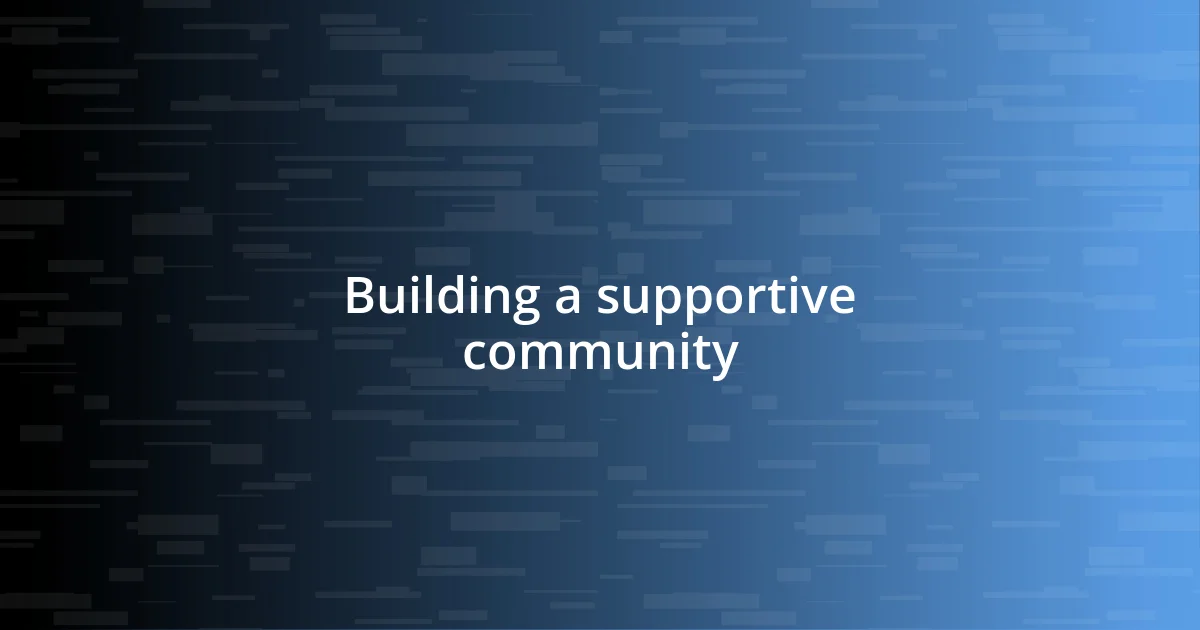
Building a supportive community
Building a supportive community through adaptive sports has been one of the most heartwarming aspects of my journey. I remember my first team meeting; I was nervous but quickly found warmth in the shared laughter and stories. The understanding that everyone had unique struggles, yet they were still eager to support one another, fostered a sense of belonging that I hadn’t experienced before.
As we bonded, I noticed that our meetings became a safe space to share both our triumphs and frustrations. One evening, someone opened up about the difficulty of navigating daily life with a disability. That moment was eye-opening; it reminded me that these interactions go beyond just sports. We were not merely teammates; we became confidants, cheering each other on both on and off the field. Have you ever felt that powerful connection within a group? It’s exhilarating to see how shared experiences can forge real friendships.
The sense of community extends even further during competitions. I still vividly recall the day we all wore matching shirts, emblazoned with our team’s motto, “Stronger Together.” The energy was electric as we cheered one another on, feeling that collective strength and spirit. I realized that in adaptive sports, the victories we celebrate are never solely individual; they’re a reflection of our united efforts. That’s the beauty of it—each cheer, each high five, creates an unspoken bond that strengthens our community, making every challenge a little more manageable.
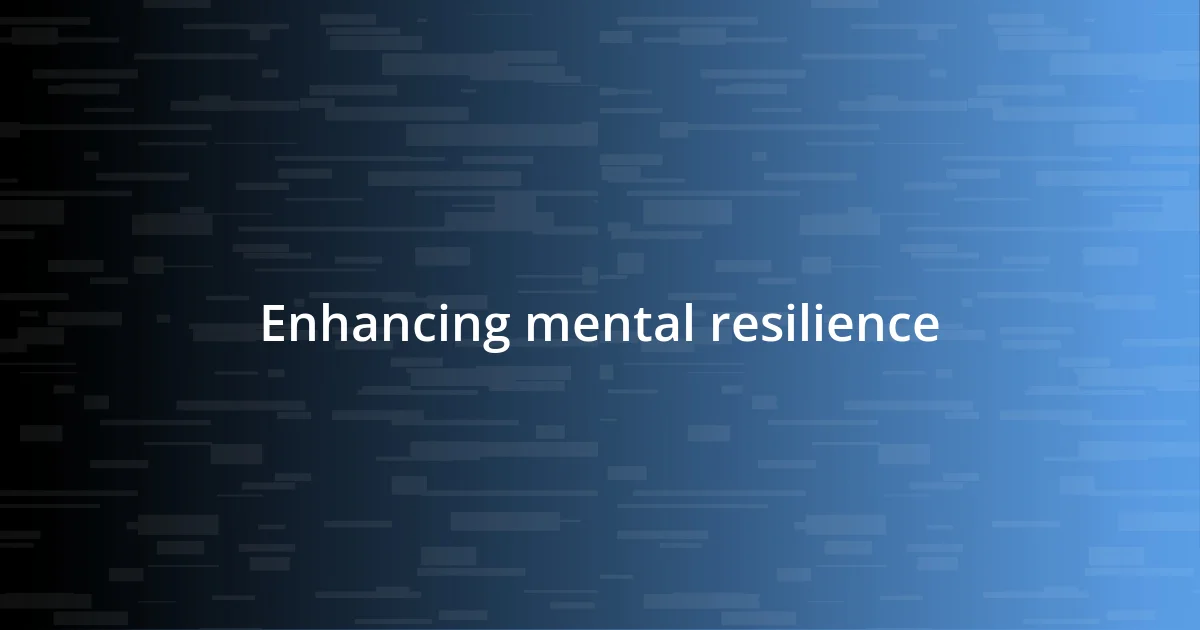
Enhancing mental resilience
Participating in adaptive sports has profoundly shaped my mental resilience. I recall a particularly tough day during my adaptive rowing practice; the water was choppy, and I struggled to maintain focus. Despite the physical challenges, something clicked in my mind—I realized that if I could navigate these waves, I could tackle any obstacle life threw my way. It’s empowering to grasp that mental fortitude isn’t just about enduring hardships but actively finding ways to thrive despite them.
One of the most striking lessons I learned was from a fellow athlete who often spoke about the importance of maintaining a positive mindset. During one ski outing, he fell more times than I could count, but rather than get frustrated, he laughed it off with every tumble. His attitude was infectious, reminding me that resilience is about learning to rise again, often with a new perspective. Have you ever noticed how laughter can lighten even the heaviest moments? I’ve found that embracing joy amid adversity makes the journey lighter and more enjoyable.
I remember vividly the first time I faced a significant setback—a minor injury during a training session. It would have been easy to wallow in frustration, but instead, I used that time to reflect on my mindset. I started journaling about my experiences, and this practice became my lifeline. It taught me to channel setbacks into growth opportunities. Isn’t it intriguing how setbacks can often lead us to the most profound self-discoveries? Each experience, whether joyful or challenging, nurtures a deeper understanding of what being resilient truly means.
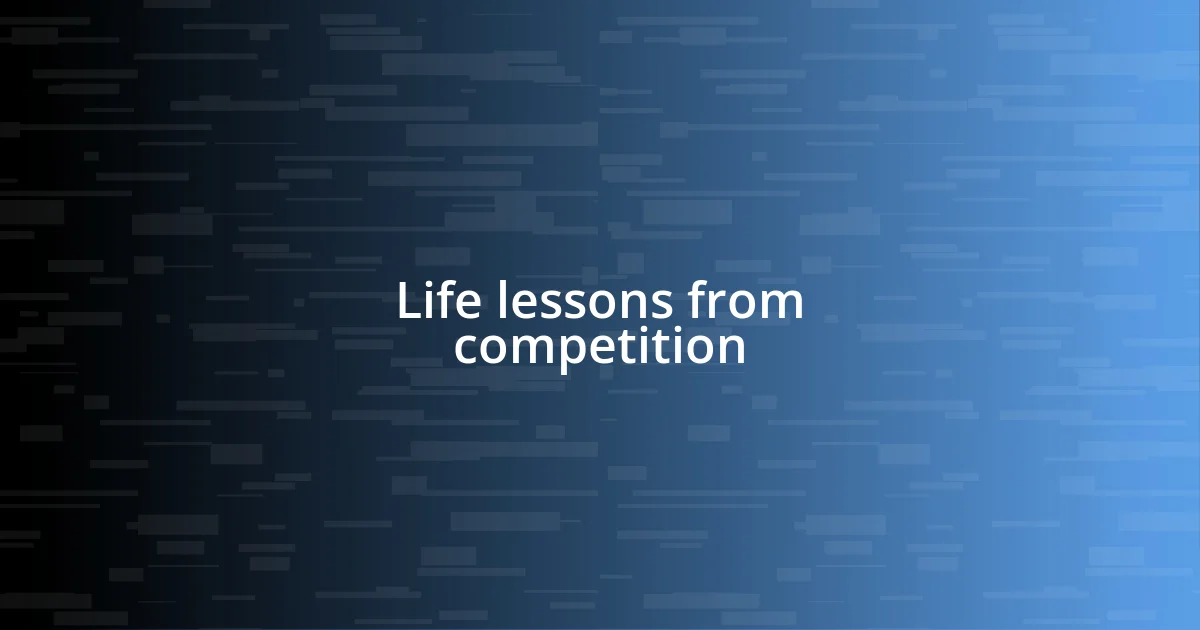
Life lessons from competition
Competing in adaptive sports has taught me that losing is just a stepping stone to winning. I remember a competition where I missed the podium by mere seconds. As I watched others receive their medals, I felt a mixture of disappointment and determination. It made me realize that each loss holds valuable lessons, sparking motivation to push harder next time. Have you ever experienced a setback that later became a source of strength?
Another powerful lesson came from the camaraderie I observed during close races. One time, just before the finish line, another athlete stumbled and fell. Instead of racing past, I instinctively stopped to help. Seeing that gesture of solidarity taught me that true competition isn’t just about individual achievement; it’s about lifting each other up in moments of vulnerability. Isn’t it incredible how sometimes, our greatest achievements come from actions of kindness?
Moreover, I discovered the importance of setting personal goals over comparing myself to others. Early on, I found myself enviously measuring my progress against my teammates. But one day, after finishing a race feeling exhausted yet proud, I knew that my journey was uniquely mine. I learned to celebrate every small victory, whether mastering a new technique or increasing my stamina. What aspects of your journey do you celebrate, and how do they motivate you going forward? Embracing your own path can transform competition from something daunting into a thrilling adventure.

Future of adaptive sports
As I envision the future of adaptive sports, it’s invigorating to see the increasing technological advancements. From specialized wheelchairs to innovative prosthetics, the way athletes can push their limits is evolving. Have you ever considered how technology can bridge the gap between potential and performance? I’ve marveled at how new equipment can transform an athlete’s experience, making the impossible feel attainable.
Moreover, I find it heartening to see a growing awareness and inclusion of adaptive sports in mainstream culture. There has been a remarkable shift, with more organizations and media coverage highlighting these athletes’ stories. I recall a local event where a team of adaptive rowers caught the attention of the community. Their talent and passion drew in a crowd, inspiring others to rethink what it means to compete. Isn’t it fascinating how one event can spark a movement?
Looking further ahead, I believe the future holds incredible opportunities for athlete partnerships and mentorships. Imagine seasoned athletes sharing their journeys with newcomers, creating a support system that encourages growth and resilience. I’ve experienced the profound impact a mentor can have on my own journey, guiding me through challenges with wisdom. Reinforcing these connections can enrich not just individual experiences but the entire adaptive sports community. What changes do you think could further uplift this inspiring field?



